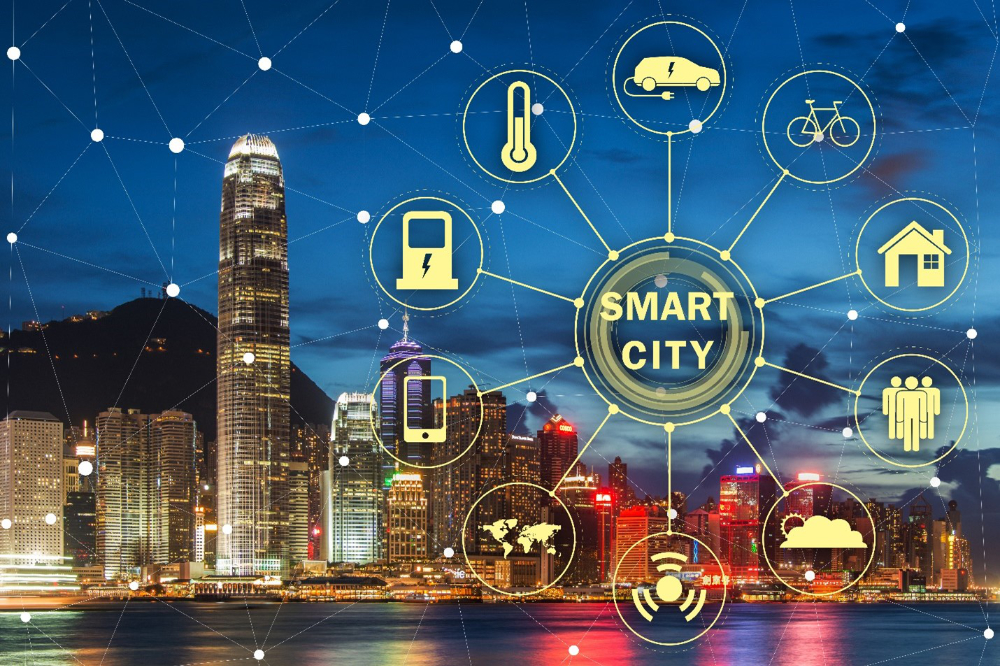Today’s smart city platforms are primarily geared towards streamlining everyday administration, which doesn’t fully encompass their potential. Mayors and city planners face multiple challenges requiring more detailed, accurate and futuristic planning capabilities.
The cornerstone of a smart city is data, which can be gathered directly by city administrations or through IoT sensors. Additionally, the ecosystem surrounding the city administration can also source data. Despite the availability of these sources, many cities across the world are struggling to collect data and drive actionable insights from it. Some cities are accumulating data, but these data reside in siloes.
For a true smart city experience, integrating this data into a virtual twin of the city is necessary. Before investing in a virtual twin, city administrators must be clear about the use cases they can deliver with the technology. Ultimately, virtual twins are key to designing the future of cities.
A virtual twin is indeed a fully science-based and virtual replica of the city. It enables city planners to input data based on what-if scenarios, choose the best outcomes, and then implement them in the real world.
So, where do cities start in deploying virtual twins? In addition to data availability, the key challenges in implementing virtual twins include political will and financial resources. Leaders must convey the value of this technology to their citizens and political superiors.
Which is the optimal path to deploying virtual twins for cities?
Directly implementing virtual twin technologies and managing them would require technology capabilities that most cities today lack. Advanced cities typically have the political will, the data, and the financial resources to purchase and implement the necessary software for building and operating the virtual twin.

Such cities have reached a high level of digital maturity and can train their staff to use high-end virtual twin technologies daily. Singapore, for example, is a city-state that has achieved significant maturity in using virtual twins for its city master planning.
For cities lacking the resources or technological maturity for deploying virtual twin technologies, one approach is to employ such technologies through a consultant or the solution provider to understand the best outcomes for a specific departmental pain point.
In such scenarios, the consultant operates the virtual twin applications, interpreting and providing results to the city administrators. It is advisable for cities planning to implement virtual twins to do so incrementally, focusing initially on specific areas like traffic management and pollution, or natural risks such as flooding.
For example, a city may seek access to the results of a flooding simulation without purchasing the software licenses. How does the flooding scenario and subsequent decisions impact the built environment, water resources, or car traffic? Normally, cities would hire a consultant who would provide an in-depth report in paper or PDF form, which is challenging to communicate.
Today, these consulting companies can build a virtual twin of the city to visualize result-based action plans in a 3D digital model. Such a model is more universally comprehensible. City executives can input parameters and analyze them in real time.
In a flooding scenario, if the government must decide whether to close a tunnel road and temporarily reroute traffic, they need to assess if this closure is beneficial or detrimental. With a virtual twin, the decision isn’t just about good or bad; it’s about how to transform a potentially bad decision into a good one based on various parameters.
The virtual twin helps city executives in understanding that the closure decision can be beneficial under certain conditions based on what-if scenarios. Instead of closing the tunnel and disrupting traffic, they can clearly understand the conditions that allow the tunnel to remain operational and those necessitating its closure.
Once city executives recognize the effectiveness of virtual twins in one area, obtaining the necessary political support and financial resources to extend their use becomes easier.
The virtual twin can help connect the dots among data from different departments, consolidating it into the virtual twin to create a 3D model of a decision.
This provides a singular, reliable source of truth for the city administration to act upon.
Start small and scale

With just a fraction of their annual budgets, cities with populations of 200,000 or more can afford to make the best decisions on issues like flooding or rising sea levels using virtual twins. City officials can thereby deliver clear value to their citizens and political hierarchy, particularly in sustainability initiatives, while alleviating pressure on themselves.
Smart city solutions enable city administrators to zero in on the optimal decisions within the constraints of their city’s infrastructure through 3D visualizations. This allows them to accurately assess the impact of changing the usage rules of existing infrastructure. The ability to make informed decisions within existing constraints is a key aspect of smart cities, because cities cannot always build new tunnels or bridges to solve challenges.
Virtual twins help administrators in understanding the objective, scientific basis of decisions. This enhances the decision-making process, dramatically changing the approach of local city governance. This is exactly what a smart city solution is supposed to do.
















